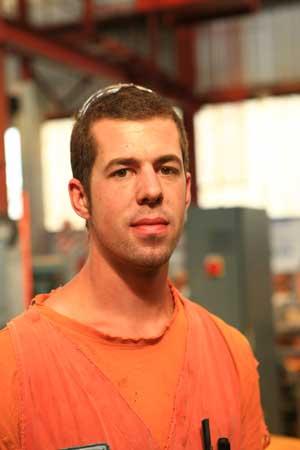|
STEVENSON Group and Palmerston North City Council are two organisations taking advantage of literacy training for very different reasons.
Stevenson Group provides quarrying, mining, engineering and concrete products and services to the roading, construction and infrastructure sectors. Last year the century-old company ran its first-ever literacy course for 53 frontline workers called ‘Stepping Up Together’.
The company took up literacy training to boost the reading, writing, maths and oral communication skills of workers, as well as strengthen workers’ self and organisational awareness. CEO Mark Franklin explains: “We’re a large, well-established family company. Our strategy for the future is about remaining a family business, with family values and working together as a family.
“This has always been the company’s focus. But it’s time to get back to basics. First and foremost, we felt it vital any workplace literacy programme should help us deliver on this strategy and articulate our company values.”
Palmerston North City Council, meanwhile, began training in 2008 to help staff in the service delivery unit get industry qualifications to progress in their careers and move up the pay scale. About 200 staff work in the Council’s service delivery unit, City Enterprises. They look after services such as buildings, roads, parks, sports grounds and rubbish and recycling.
The Council’s literacy training got under way after an assessment of the literacy and numeracy skills of around 50 staff – many of whom spoke English as a second language or left school with no or very few qualifications.
The assessment showed most employees within City Enterprises would benefit from training, prompting the Council to develop its first-ever training course.
The Council’s original ‘Foundation Skills’ course has since developed into four separate courses. Training has also become part of the Council’s wage and performance review and succession planning processes.
Years on, Council managers and supervisors report less re-work among Foundation Skills trainees. They say problem solving and team work has improved. Trainees stand out as more confident, their written communication has improved and more are moving into leadership roles.
Stevenson Group’s Mark Franklin says he too is pleased with the early results of literacy training. Team work and communication has improved. Employees are more confident, they question and solve problems more readily and relate better to their colleagues, he says.
The company now wants to roll out the programme to more employees, as well as develop a second phase.
“We can now clearly see literacy training has the potential to positively influence our bottom line. All our people need to know the basics well. They need the ability to communicate confidently with each other, work as part of a team and keep their mates safe on the job. They also need the skills to deal with the necessary paperwork and instructions required for their roles.
“With these things sorted, they can contribute to improving productivity, adapt to changes in the workplace, avoid potentially dangerous situations and learn new skills and practices more easily,” says Franklin.
On the Skills Highway website (www.skillshighway.govt.nz/ind) the Department of Labour has plenty of free advice, tools, Kiwi case studies and tips on workplace literacy training.
Do your people have all the basic skills they need? Take the five-minute Skills Gap Indicator test for the answer.
|
Apprentice engineer Mathew Loncar has completed the Stepping Up Together programme.
Apprentice engineer steps up
Q: How has Stepping Up Together helped you?
A: I work with a lot of other teams, using face-to-face communication. That’s why this course was really good for me.
Q: What’s work like now?
A: I’ve learnt to deal with different types of people – from quiet types who keep to themselves to people who are more confident. I learnt you can’t just assume everyone thinks like you do. Now I think about how someone I’m working with might want information presented. I may have to show him more drawings or write it down for him.
Q: What’s one of the biggest changes you’ve made?
A: I know about the importance of feedback now. I’m not saying I was bad to people, but sometimes I didn’t tell people when they’d done a really good job. I just assumed it wasn’t important. But now I find it makes a huge difference when I actually go back to them and say ‘Thanks, that was awesome work delivered on time and I appreciate it.’
|






